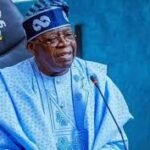The World Bank Group has once again lowered its growth projection for Nigeria’s economy, citing a weakened oil sector as its primary reason.
This was contained in the bank’s Global Economic Prospects report published on Tuesday.
According to the projection, Nigeria’s economy will further decelerate to 2.9 per cent in 2023 and is not expected to record any growth in 2024.
Specifically, the bank said Nigeria’s growth weakened to 3.1 per cent in 2022 and would further decelerate to 2.9 per cent this year.
The Washington-based bank said growth momentum in the non-oil sector was likely to be restrained by continued weakness in the oil sector, which would negatively impact Nigeria’s oil-based economy.
The Bank noted that a number of factors, such as low oil output, insecurity, petrol subsidies, forex scarcity, among others, hamper growth in the country.
The report read, “Growth in Nigeria—the region’s largest economy—weakened to 3.1 per cent in 2022, a 0.3percentage point downgrade from the June projection. Oil output dropped to 1 million barrels per day, down by over 40 per cent compared to its 2019 level, reflecting technical problems, insecurity, rising production costs, theft, lack of payment discipline in joint ventures, and persistent underinvestment, partly because of the diversion of oil revenues to petrol subsidies, estimated at over 2 per cent of GDP in 2022 (NEITI 2022; World Bank 2022t).
“A strong recovery in non-oil sectors moderated in the second half of the year as floods and surging consumer prices (annual inflation surpassed 21 per cent for the first time in 17 years) disrupted activity and depressed consumer demand. Persistent fuel and foreign exchange shortages, with the naira depreciating by over 30 per cent last year in the parallel market, further dampened economic activity.”
The bank further noted that the poor economic growth of 2.9 per cent in 2023, will be barely above population growth, which is often said to be around 2.5 per cent in previous reports.
The latest projection came barely three weeks after the bank lowered its economic projection for Nigeria’s economic growth from 3.8 per cent to 3.1 per cent.







